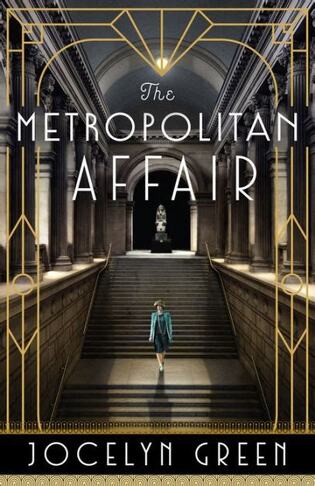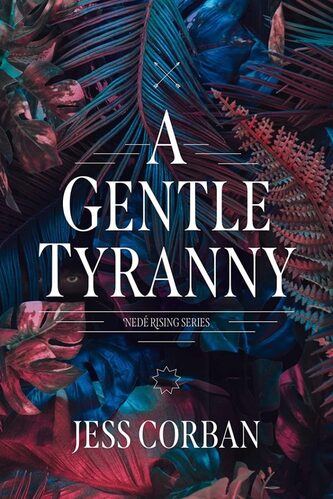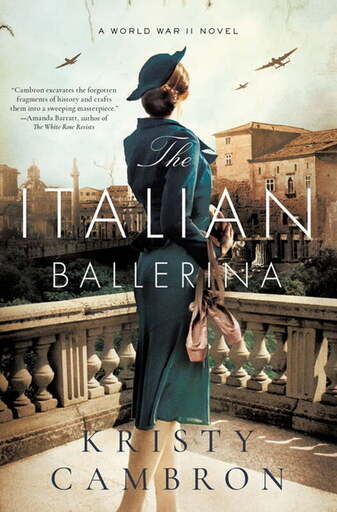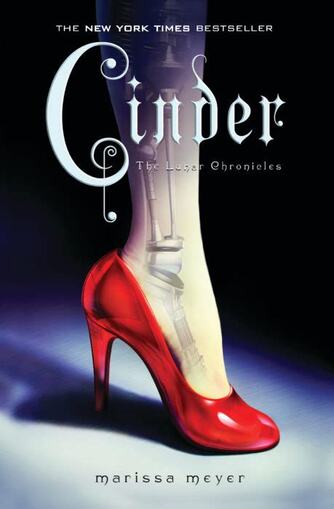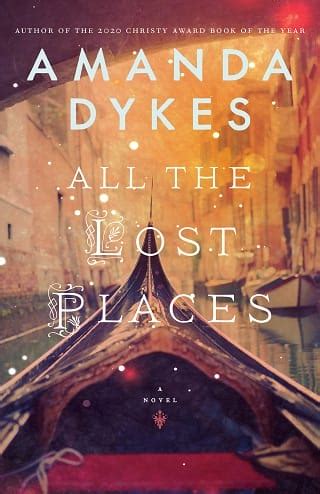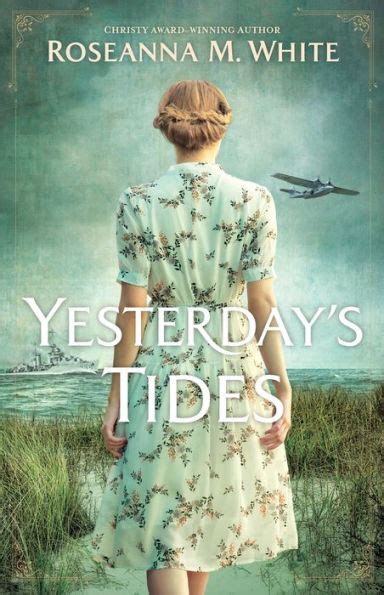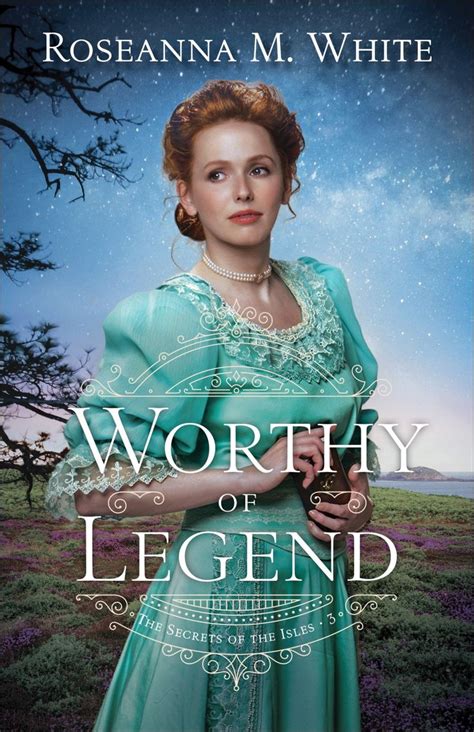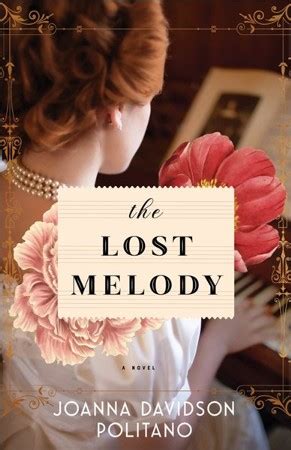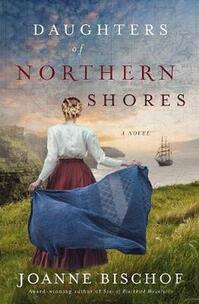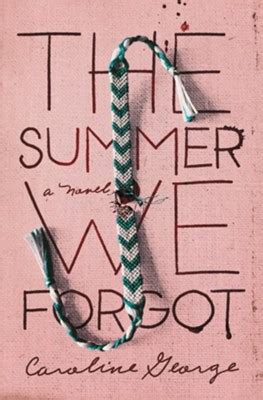|
Summary Bestselling author Jocelyn Green sweeps you away in a dazzling novel of secrets, betrayal, and romance within one of New York City's most esteemed museums. For years her explorer father promised Dr. Lauren Westlake she'd accompany him on one of his Egyptian expeditions. But as the empty promises mounted, Lauren determined to earn her own way. Now the assistant curator of Egyptology for the Metropolitan Museum of Art, Lauren receives two unexpected invitations. The first is her repentant father's offer to finally bring her to Egypt as his colleague on a new expedition. The second is a chance to enter the world of New York's wealthiest patrons who have been victims of art fraud. With Egyptomania sweeping the city after the discovery of King Tut's tomb, Detective Joe Caravello is on the hunt for a notorious forger preying on the open wallets of New York's high society. Dr. Westlake is just the expert he needs to help him track the criminal. Together they search for the truth, and the closer Lauren and Joe get to discovering the forger's identity, the more entangled they become in a web of deception and crime. Positives I’ve got a new addition to the favorite books stack. This book is everything I love—a smart, down-to-earth heroine who defies all the odds and the people who tell her she can’t. A compelling mystery laced with suspense. A unique angle of history. And, of course, a side character that I inexplicably love and fear for his life. (Points to Jocelyn Green for keeping him alive!) I loved the angle of how (name) tackled sexism—not in a “I’m better than you, and I can do whatever I want” sense. But in the sense of recognizing the passion that God gave her, and that this particular passion was not limited to gender. In her overcoming and proving wrong all the many, many naysayers. She is a powerful example to readers. And plus, how many heroines are into Egyptology? Joe was great as well. She did a wonderful job giving me two well-developed characters to root for. The romance in this book was also unique in that they had met and fallen in love before! The second-chance aspect of this book was very sweet and different. This book pulls no punches when it comes to neglect and emotional abuse. Against my will, she got me to the point where I was rooting for the abuser to change, so Lauren wouldn’t have to go through this pain anymore. But the truth is, often abusers don’t change, or not as quickly as we’d like. I can’t say much more without spoiling the ending, but this story will come alongside abuse victims in a very personal way. And that mystery! I could not quit reading, I had to know how it all worked out. I had so many theories, and none of them were right. Blew my mind. Negatives None. Conclusion The Metropolitan Affair is one of my new favorite books. This book is everything I love—a smart, down-to-earth heroine who defies all the odds and the people who tell her she can’t. A compelling mystery laced with suspense. A unique angle of history. Tackling tough topics like emotional abuse and sexism. And, of course, a side character that I inexplicably love and fear for his life. (Thanks for keeping him alive.)
0 Comments
Summary What if women unraveled the evils of patriarchy? With men safely "gentled" in a worldwide Liberation, the matriarchy of Nedé has risen from the ashes. Seventeen-year-old Reina Pierce has never given a thought to the Brutes of old. Itching to escape her mother's finca--and desperate to keep her training and forbidden friendship a secret--her greatest worry is which Destiny she'll choose on her next birthday. But when she's selected as a candidate for the Succession instead, competing to become Nedé's ninth Matriarch, she discovers their Eden has come at a cost she's not sure she's willing to pay. Jess Corban's debut novel presents a new twist to the dystopian genre, delivering heart-pounding action, thought-provoking revelations, and a setting as lush as the jungles of Central America. Positives I’m not sure how I feel about these books. And that’s why I admire it. This book tackles ideas of gender, women’s rights, femininity, and sexism in a unique and fresh way. Using a compelling plot and high stakes, it kept me turning pages. Her characters had to make hard decisions—decisions that made my stomach sink at times. And in them making those hard decisions, I was forced to think through some as well. I’m not sure I agree with everything in this allegory. Sometimes I’d nod my head. Sometimes I’d say no. A lot of the time I’d think hard. In some ways, it didn’t feel quite sensitive enough to women who have been horrifically abused, even though it’s clear Jess Corban put a lot of effort into it. The allegory can tip towards the preachy side at times, as well. I would have liked to see it tackled with more sensitivity and subtlety; I believe that would have made it a more powerful read. These books won’t be for everyone, but I would still recommend giving them a read. Even if you disagree, it may help you think through your own beliefs and identity in a new way. Also, points for the Central American representation! It was a fresh new take on a dystopian setting. Negatives As mentioned above, these books won’t be for everyone, but I would hope they wouldn’t dismiss or shame them just because of a difference in perspective. Conclusion Nede Rising isn’t for everyone. Some will agree, some will disagree. I’m not sure where I fall on the spectrum myself. But that’s why these books are important, because they force us to think and make the hard decisions. While some sensitivity may be lacking, it’s clear the author worked hard and cared enough to touch the hard things of being a woman. And that’s worth celebrating. Summary At the height of the Nazi occupation of Rome, an unlikely band of heroes comes together to save innocent lives in this breathtaking World War II novel based on real historical events. Rome, 1943. With the fall of Italy’s Fascist government and the Nazi regime occupying the streets of Rome, British ballerina Julia Bradbury is stranded and forced to take refuge at a hospital on Tiber Island. But when she learns of a deadly sickness sweeping through the quarantine wards—a fake disease known only as Syndrome K—she is drawn into one of the greatest cons in history. Alongside hospital staff, friars of the adjoining church, and two Allied medics, Julia risks everything to rescue Jewish Italians from the deadly clutches of the Holocaust. Soon a little girl who dreams of becoming a ballerina arrives at their door, and Julia is determined to reunite the young dancer with her family—if only she would reveal one crucial secret: her name. Present Day. Delaney Coleman recently lost her grandfather—a beloved small-town doctor and World War II veteran, so she returns home to help her aging parents. When a mysterious Italian woman reaches out claiming to own one of the family’s precious heirlooms, Delaney is compelled to travel to Italy and uncover the truth of her grandfather’s hidden past. With the help of the woman’s skeptical but charming grandson, Delaney learns of a Roman hospital that saved hundreds of Jewish people during the war. Soon, everything Delaney thought she knew about her grandfather comes into question. Based on true accounts of the invented Syndrome K sickness, The Italian Ballerina journeys from the Allied storming of the beaches at Salerno to the London ballet stage and the war-torn streets of World War II Rome, exploring the sometimes heart-wrenching choices we must make to find faith and forgiveness, and how saving a single life can impact countless others. Positives All hail a master of time slip! Kristy Cambron’s The Paris Dressmaker is one of my favorite books, and her use of time slip stuck with me and made it impossible to put down. She has used it masterfully once more, although the story itself is very different. That first chapter with Court grabbed me right off the bat. Everything I love to see in a chapter—action, questions, and a glimpse inside the character’s head. The ending of this book broke my heart in all the best ways. I did not see it coming at all. Honestly, the beginning was similar to books I’ve seen before—the girlfriend’s surprise pregnancy, the guy heading off to war after finding out the news. But the ending, and the story that led to it, was something different. It was unmistakably true, good even amidst the pain, and a departure from the tradition happy endings we see all the time. Turning the tropes on their head helped the themes hit my heart in a meaningful new way. I also admired Matteo and Delaney’s avoidance of the misunderstanding trope that honestly I would be happy to never see in romance again. When a piece of Matteo’s past came up, Delaney worked through in both a kind and sensible manner. Cheers all around. Also, a cool nod to Indiana in there! Negatives None. Conclusion The Italian Ballerina steps onto a stage occupied by many others—many other WWII novels, many other time-slip novels, many other tropes. But it distinguishes itself from the start. Its finale will not be forgotten, along with the meaningful questions it raises. Summary Humans and androids crowd the raucous streets of New Beijing. A deadly plague ravages the population. From space, a ruthless lunar people watch, waiting to make their move. No one knows that Earth's fate hinges on one girl. . . . Cinder, a gifted mechanic, is a cyborg. She's a second-class citizen with a mysterious past, reviled by her stepmother and blamed for her stepsister's illness. But when her life becomes intertwined with the handsome Prince Kai's, she suddenly finds herself at the center of an intergalactic struggle, and a forbidden attraction. Caught between duty and freedom, loyalty and betrayal, she must uncover secrets about her past in order to protect her world's future. With high-stakes action and a smart, resourceful heroine, Cinder is a Cinderella retelling that is at once classic and strikingly original. Positives I was skeptical about this book. I had read her book Heartless and adored it, but that was more of a straight fantasy. I’m not much of a sci-fi gal, and I knew this story would be a gamble. Luckily, I got it for a couple bucks at a bookstore due to a damaged cover. And it made it into the bag when I needed a book for a dogsitting trip. I’m so glad it did. The worldbuilding blows my mind. I haven’t read many books steeped in Asian culture, so this one was both a breath of fresh air and a lovely bit of representation. The twists on the old Cinderella tale are so clever, sometimes I didn’t even quite realize it until it had passed. I gathered up every little detail I could, trying to predict the path ahead, only for Marissa Meyer to turn it on its head in the most glorious way. Cinder herself was not at all what I expected, but deeply relatable. She tries to be tough and brusque on the outside to hide a girl who desperately wants someone, anyone to love and notice her. The themes in this book, speaking to the question “am I worthy?” are heartachingly beautiful. This was one of those books that wouldn't let me forget why I love reading. I was so absorbed in the story. Negatives There are three easily censored pieces of language in this book. Please note that while this is not a Christian book, it is a clean wholesome book. Conclusion Cinder gathers up the greasy mismatched parts of the old Cinderella tale, dumps them on a table, and begins to build. Manufacturing a few pieces of clever Eastern representation and heartaching questions of worth, it builds something no one has ever seen before—and in the process, creates an immersive story, the old-fashioned kind that pulls you in till pages’ end. Summary 1807 When a baby is discovered floating in a basket along the quiet canals of Venice, a guild of artisans takes him in and raises him as a son, skilled in each of their trades. Although the boy, Sebastien Trovato, has wrestled with questions of his origins, it isn't until a woman washes ashore on his lagoon island that answers begin to emerge. In hunting down his story, Sebastien must make a choice that could alter not just his own future, but also that of the beloved floating city. 1904 Daniel Goodman is given a fresh start in life as the century turns. Hoping to redeem a past laden with regrets, he is sent on an assignment from California to Venice to procure and translate a rare book. There, he discovers a city of colliding hope and decay, much like his own life, and a mystery wrapped in the pages of that filigree-covered volume. With the help of Vittoria, a bookshop keeper, Daniel finds himself in a web of shadows, secrets, and discoveries carefully kept within the stones and canals of the ancient city . . . and in the mystery of the man whose story the book does not finish: Sebastien Trovato. Positives When I first saw this book and its synopsis via bookstagram, I was afraid it would be too slow for me. But I couldn’t resist the beauty of the story and that gorgeous front cover. I could not have been more surprised. True, this book is slower-paced than some others I could name on my shelf. But it is one of the most compelling books I’ve read in a while. I couldn’t put it down. I cared so much about each of the characters, but especially Daniel. I couldn’t wait to put all the Ventian-glass pieces together, past and present, to discover what it had been shaping all along. Amanda Dykes’ writing is amazing. She writes truly beautiful stories and does so using truly beautiful prose. It’s a unique talent that made this book a treat to read. Negatives None. Conclusion All the Lost Places is a book rocks with the gentle pace of a gondola. But not the sort of rocking that puts you to sleep—the kind that wakes you up and makes you turn another page to discover more of the beauty and the mystery in your lost places. Summary In two world wars, intelligence and counterintelligence, prejudice, and self-sacrifice collide across two generations. In 1942, Evie Farrow is used to life on Ocracoke Island, where every day is the same--until the German U-boats haunting their waters begin to wreak havoc. And when special agent Sterling Bertrand is washed ashore at Evie's inn, her life is turned upside down. While Sterling's injuries keep him inn-bound for weeks, making him even more anxious about the SS officer he's tracking, he becomes increasingly intrigued by Evie, who seems to be hiding secrets of her own. Decades earlier, in 1914, Englishman Remington Culbreth arrives at the Ocracoke Inn for the summer, never expecting to fall in love with Louisa Adair, the innkeeper's daughter. But when war breaks out in Europe, their relationship is put in jeopardy and may not survive what lies ahead for them. As the ripples from the Great War rock Evie and Sterling's lives in World War II, it seems yesterday's tides may sweep them all into danger again today. Positives First off, can we please stand for excellent Black and multiracial representation! I was so excited when I saw that this book centered on a Black/multiracial family in the two different eras presented. The author did a wonderful job of writing sensitively, especially since it’s a topic she has not encountered herself. Second off, can we please stand for a beautiful time slip! I’m discovering how much I love time slip and this book is a reason why. When it would switch times, I was both disappointed to not figure out what happens to the first cast, but also excited to pick back up with the second cast—perfection. And the fact that I couldn’t see the complete picture of what was happening until the end—amazing. The tension between characters was brilliant and kept me reading, waiting to see what drama might implode next. And Remington’s mother, if you’re out there, I will come and hunt you down. You are truly evil. If any of you are Roseanna M. White fans, this book contains references to every one of her series, which is so fun and I had a blast finding and recognizing them all. Negatives None. Conclusion Yesterday’s Tides is a beautiful time slip that also sails perfectly into our time. Specifically the time that you will not regret using to read it. Summary
1906 After a summer of successful pirate-treasure hunting, Lady Emily Scofield and her friends must hide the unprecedented discoveries they've made, thanks to the betrayal of her own family. Horrified by her brother, who will stop at nothing to prove himself to their greedy father, Emily is forced to take a stand against her family--even if it means being cut off entirely. Bram Sinclair, Earl of Telford, is fascinated with tales of King Arthur and the Knights of the Round Table--an interest he's kept mostly hidden for the last decade. But when a diary is unearthed on the islands that could lead to a secret artifact, Bram is the only one able to piece the legends together. As Bram and Emily seek out the whereabouts of the hidden artifact, they must dodge her family and a team of archaeologists. In a race against time, it is up to them to decide what makes a hero worthy of legend. Is it fighting valiantly to claim the treasure . . . or sacrificing everything in the name of selfless love? Positives The thing I loved the most about this book was it’s handling of emotional abuse/trauma. At first, I wasn’t sure I was going to be pleased with it, especially since emotional abuse and trauma is a topic I’m passionate about. The four trauma responses are fight, flight, freeze, and fawn. Emily displayed signs of the “fawn” trauma response, where she tries to get her abuser’s attention and may or may not submit to their demands in order to earn their approval. At first, no one around her seemed to realize the problem with that. They simply praised Emily for having a good heart and for loving her enemies, instead of recognizing the situation was unsafe and that there were no healthy boundaries to protect her. Throughout the story, however, that theory was debunked. Emily realized that she couldn’t save them, that she could only save herself. She could show mercy, but she also needed to protect herself. Her friends also seem to have gathered that. In some ways, I think that point could have been clearer, but overall, I think this book achieves that end beautifully. The climax alone would have sold the entire book for me. It was an epic way to close both the book and this three-book treasure hunt on the isles. The main character, Bram, has come so far from the beginning of Book 1. Take a look at my quote from my review of Book 2, To Treasure an Heiress. “I’m very excited to see the dynamic between Telford and Emily play out, but especially between Emily and her family. It looks like it will be a golden opportunity to represent verbal and emotional abuse—a subject that is often not represented at all or represented very poorly making the survivors seem like wimps. And she did convince me to like Telford after how I hated him for how he treated Libby in the first book--I mean, he takes in stray animals and likes chocolate. There may be hope for him.” All I can say is my hopes were fulfilled. Negatives None. Conclusion Worthy of Legend is worthy of your shelf. And your reading time. And your mind. And your heart. Summary
When concert pianist Vivienne Mourdant's father dies, he leaves to her the care of an adult ward she knew nothing about. The woman is supposedly a patient at Hurstwell Asylum. The woman's portrait is shockingly familiar to Vivienne, so when the asylum claims she was never a patient there, Vivienne is compelled to discover what happened to the figure she remembers from childhood dreams. The longer she lingers in the deep shadows and forgotten towers at Hurstwell, the fuzzier the line between sanity and madness becomes. She hears music no one else does, receives strange missives with rose petals between the pages, and untangles far more than is safe for her to know. But can she uncover the truth about the mysterious woman she seeks? And is there anyone at Hurstwell she can trust with her suspicions? Positives I have never had the privilege of reading a Joanna Davidson Politano book, but she’s been on my to-be-read list for a while. So when my library got this one in, I pounced on it immediately. It was nothing at all like I’d imagined. This book is a mind trip hidden in a pink flowery cover. The best comparison I’ve got is if you’ve seen the Marvel show Moon Knight, specifically episode four. I hit this certain point where I was like, Is she actually just making this all up and believing it’s true? Did any of this ever happen? Can I trust any of these people? Is this real? Am I real? That was the best thing about this book to me. This is one of the most solid books I’ve read in Christian fiction when it comes to mental health, in the same category as Coral by Sara Ella. The author sensitively portrays a spectrum of mental illnesses, as well as the pros and cons of mental care in the Victorian era. Round it out with a vibrant character voice, a unique writing style, the right dash of mystery, and a very subtle romance, and there you have The Lost Melody. Negatives None. Conclusion The Lost Melody may look pink and flowery, but there’s a lot more lost between those pages. Summary
Aven Norgaard understands courage. Orphaned within an Irish workhouse, then widowed at just nineteen, she voyaged to America where she was wooed and wed by Thor Norgaard, a Deaf man in rural Appalachia. That the Lord saw her along the winding journey and that Aven now carries Thor’s child are blessings beyond measure. Yet while Thor holds her heart, it is his younger brother and rival who haunts her memories. Haakon—whose selfish choices shattered her trust in him. Having fled the Norgaard orchard after trying to take Aven as his own, Haakon sails on the North Atlantic ice trade, where his soul is plagued with regrets that distance cannot heal. Not even the beautiful Norwegian woman he’s pursued can ease the torment. When the winds bear him home after four years away, Haakon finds the family on the brink of tragedy. A decades-old feud with the neighboring farm has wrenched them into the fiercest confrontation on Blackbird Mountain since the Civil War. Haakon’s cunning and strength hold the power to seal many fates, including Thor’s—which is already imperiled due to a grave illness brought to him at the first prick of warfare. Now Haakon faces the hardest choice of his life. One that shapes a battlefield where pride must be broken enough to be restored, and where a prodigal son may finally know the healing peace of surrender and the boundless gift of forgiveness. And when it comes to the woman he left behind in Norway, he just might discover that while his heart belongs to a daughter of the north, she’s been awaiting him on shores more distant than the land he’s fighting for. Positives This was the story I never thought I wanted. The story ties in very neatly and cohesively with the first book. But I wasn’t sure just how I felt about Haakon being back and being a major player in this story (which speaks volumes to how well she developed him in the first book). If you’ve read Sons of Blackbird Mountain, the first book in the series, you know that he did a super spoiler-y thing at the end and has generally been a bit of a pain before. (Although not without his reasons.) I was very curious to see just how his forgiveness arc would go. Forgiveness arcs, in my opinion, are one of those things that are done very well or very horribly. Joanne Bischof aced it. They didn’t all drop everything just because Haakon was back. In fact, by the end of the story, the ones he’d hurt the most (Aven and Thor) still struggled with him. Haakon had to make good on his promise, to show he truly was changed, before they would trust him--as it should be. Even though the characters chose to forgive right away, trust didn’t come right away. That’s a missing ingredient in a lot of forgiveness arcs. This book handles a lot of sensitive subjects very well, much as its predecessor did. This book sensitively handles topics such as drug use, alcoholism, and domestic abuse. It also sports a very diverse cast, more diverse than most anything else I’ve seen in Christian fiction, including a Black family and a Deaf protagonist. Rather than dealing with an initial romance, this story focuses on the challenges that come after. The inclusion of Kristji was very interesting, considering she has a huge bearing on the plot—even is pictured on the front cover!—but only appears in one, perhaps two chapters. It was an interesting cliché-bender. And that spoiler-y death at the end! I’ve got to admit, that got me. I have not read that much of a tearjerker death scene in a while. Negatives None. Conclusion Daughters of Northern Shores follows in the footsteps of its predecessor, charting courses that are rarely trod in Christian fiction. Summary Some memories are better left forgotten. Darby and Morgan haven’t spoken for two years, and their friend group has splintered. But when the body of their former science teacher is found in the marsh where they attended camp that summer, they realize they have more questions than answers . . . and even fewer memories. No one remembers—or no one is talking. The group of reunited friends suspects that a murderer is stalking the coastal highway 30A, and they are desperate to recover their memories as quickly as possible . . . before their history they can’t remember repeats itself. Everyone has a secret. As tensions rise and time runs out, Darby and Morgan begin to wonder if they can believe one another . . . or if they can even trust themselves. Positives OH. MY. GOODNESS. Look out, we have a new favorite book coming through. This book is brilliant. It channels the vibes perfectly. The setting is so vivid and real, I could picture it immediately even though I live in the country of Indiana and have never been to Florida ever in my life. The book expertly gives us a group of flawed teens who make huge mistakes and bad choices. Teens that anyone, any age can relate to, because we’ve all made huge mistakes and bad choices. It has a beautiful message hidden in the dark waters, reminding us all that no matter what we’ve done or been done to us, we get to choose where we go from here. But the real killer here is the plot. (Yep. I just made that joke.) When I told my sister the premise of the book, she teasingly guessed what the twist would be. I laughed and said, no, that was way too out there, that couldn’t be the answer. IT WAS. I didn’t see the twist or the culprit coming from ANYWHERE. This is the sort of book that made me want to immediately read it again to figure out what I missed. Honestly, from the prose to the plot to the characters, this is the kind of book I aspire to write. I definitely will be returning to it again and again, not just to read, but also to study and learn from. It’s that good. And much to my despair, her next book, which looks equally amazing, doesn’t come out until September. Negatives This book does have two instances of mild language, along with several words of that weird sort that aren’t language but aren’t really polite either. While I whited out the two language instances, none of the other words were enough to worry me. The teens in this book do make some poor choices, for both good and bad reasons, and sometimes get away with it. I never got the vibe that the story was saying “well, they were solving a murder, so it’s okay” but some readers may want to be aware of the lack of consequences portrayed. Conclusion The Summer We Forgot is exactly the opposite. You can’t forget this book, even if you tried. And why would you want to? |
Rachel's Reads
Hi there! Rachel again. Check out this section for book reviews and cover reveals of some of my favorites! Archives
June 2023
Categories
All
|
